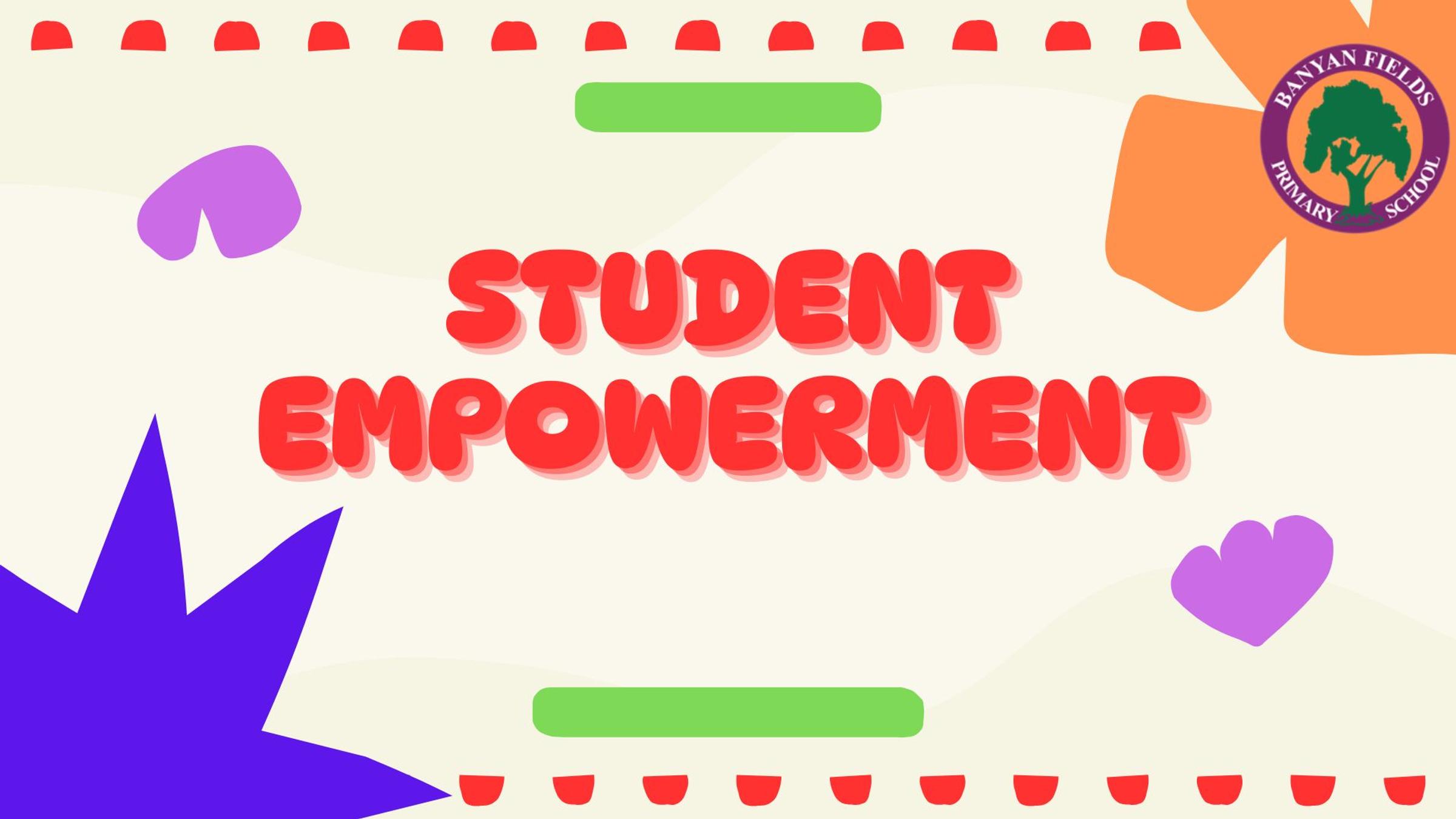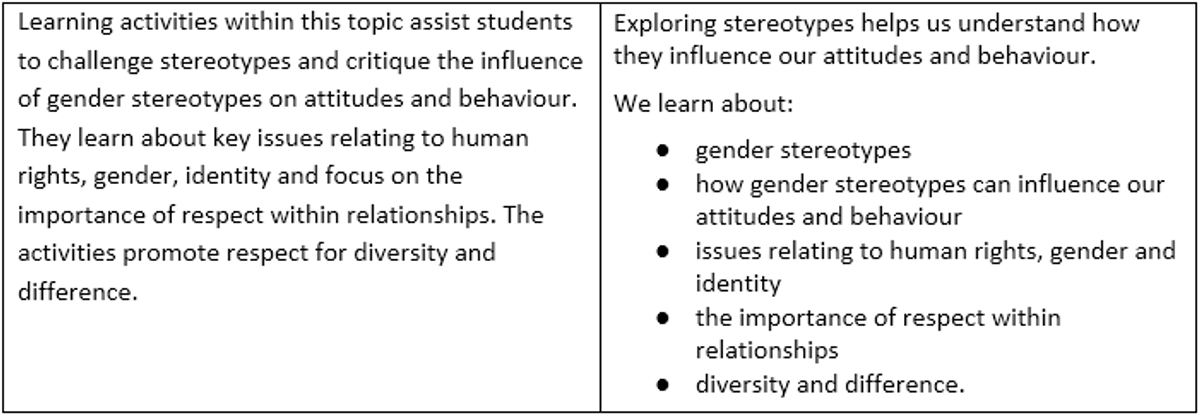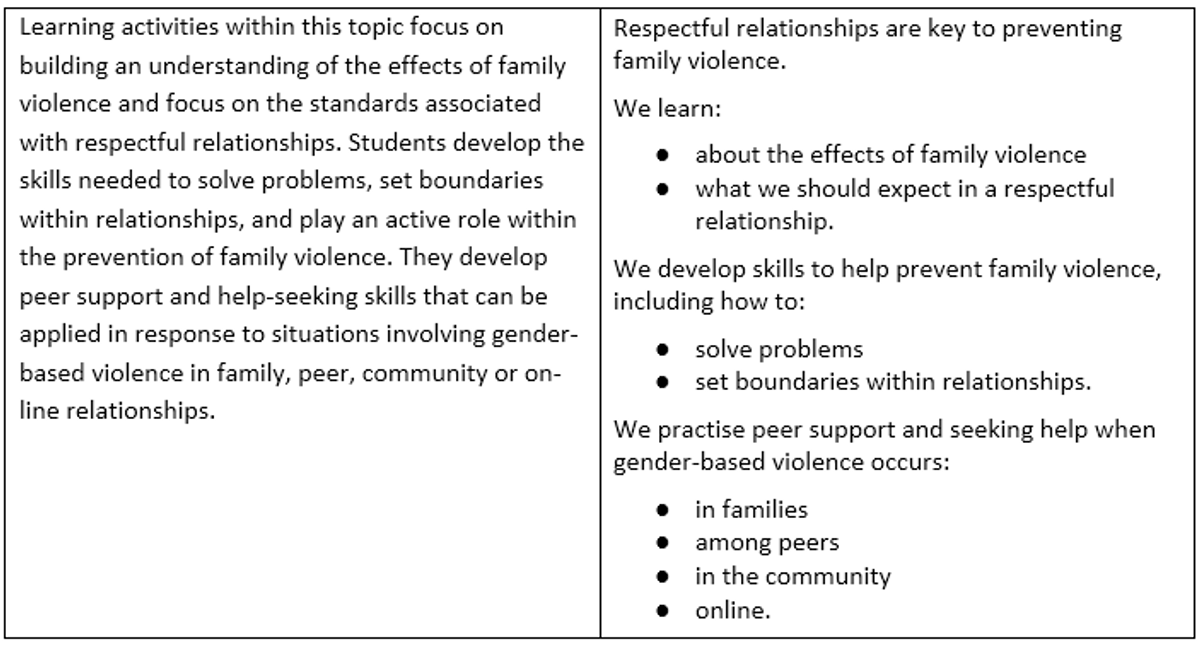Student Empowerment

Respectful Relationships
Pillar 7 is Gender Norms and Stereotypes
The final pillar is Positive Gender Relations.
Myth or Fact?
Myth: Students will use the Resilience, Rights and Respectful Relationships teaching and learning materials learning materials like a textbook
Fact: The Resilience, Rights and Respectful Relationships teaching and learning materials are designed to support teachers to deliver respectful relationships education in the classroom.
Teachers use their experience and knowledge to deliver this material in the most suitable way for their students. Materials were developed by nationally and internationally recognised experts from the University of Melbourne’s Graduate School of Education.
Myth: The Resilience, Rights and Respectful Relationships teaching and learning materials aren’t based on evidence
Fact: This is untrue.
The Resilience, Rights and Respectful Relationships teaching and learning materials have been developed by experts from the University of Melbourne’s Graduate School of Education, based on evidence from reputable research bodies and leading authorities including:
- UNICEF
- VicHealth
- Australian Bureau of Statistics
- Office of the UN High Commissioner for Human Rights
- Australian Institute of Health and Wellbeing
- UNESCO
Myth: Respectful relationships education will mean less time for literacy and numeracy
Fact: The Victorian Government is committed to improving literacy and numeracy outcomes for our students which is why we have recently launched our Literacy and Numeracy Strategy. It provides greater investment and support for teachers through teaching resources and professional development opportunities.
Myth: Respectful relationships education does not address violence against men
Fact: Respectful relationships education is about building positive relationships for all young people.
Students are given the opportunity to explore emotions such as anger and frustration and develop non-violent problem solving strategies.
All secondary school students, learn about and explore the relationship between gender and power and the way gender stereotypes and behaviours can lead to unhealthy relationships or coping strategies.
Primary school students are supported to learn new skills to build their confidence and resilience.
Myth: Respectful Relationships and the Safe Schools program are the same
Fact: Respectful Relationships and Safe Schools are two very different initiatives.
Safe Schools is a about creating inclusive and safe environments for all students, including Lesbian, Gay, Bisexual, Trans and gender diverse, Intersex, Queer, Asexual and questioning (LGBTIQA+) students.
Safe Schools seeks to prevent, and respond to, discrimination against LGBTIQA+ students. Safe Schools is not part of the Victorian Curriculum.
Respectful Relationships is part of the curriculum. It promotes respect and gender equality and helps students learn how to build healthy relationships.
Myth: Respectful Relationships will ban fairy tales
Fact: This is untrue.
In schools, the Victorian Curriculum provides opportunities for students to read fairy tales as part of both the Languages and English Curriculum. In early childhood settings, Respectful Relationships will be offered as a voluntary professional learning program to early childhood professionals.
The training encourages early childhood professionals to consider telling stories with a range of different characters in various professions and roles. This provides a diversity of role models for children – for example, female characters who are firefighters, male characters who are nurses.
In fact, as educators reflect on whether there is balance in how genders and professions are represented in toys and books, it is likely that more books and resources will be added to provide balance and diversity in representation.
Myth: This initiative is trying to say that boys can’t play with trucks and girls can’t play with dolls
Fact: Absolutely not. This initiative is not seeking to make children ‘gender neutral’ or trying to prevent girls from playing with dolls, or boys with trucks.
Respectful Relationships is about creating an environment in which children are not restricted by gender stereotypes and are free to explore and play as they choose.
Myth: The Respectful Relationships is a sex education program
Fact: Respectful Relationships is separate to sex education in the curriculum.
Rebecca McCorkindale
Student Empowerment Leader


